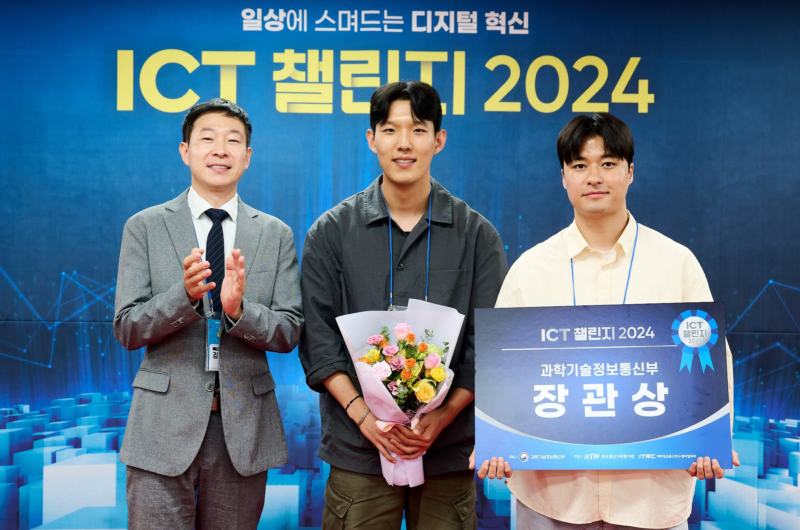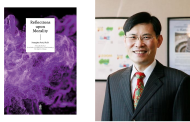Team S2LAB, consisting of Jiun Min, DongYeon Yu, and SeongYun Jeong, and led by Professor Yuseok Jeon from the Department of Computer Science and Engineering at UNIST, has been awarded the Minister of Science and ICT Award for securing first place in the ‘ICT Challenge 2024.’
Held from September 23 to 25, the competition featured 69 teams comprising 207 master’s and doctoral students from 27 universities across the nation. Participants showcased their technology commercialization capabilities by developing prototypes that incorporate advanced technologies, including artificial intelligence and next-generation mobile communication.
S2LAB’s standout project, “ERASAN,” is a groundbreaking technology designed to efficiently detect memory bugs in Rust, a systems programming language. The technology has demonstrated an impressive performance improvement of 239 percent compared to Google’s ASAN technology. Given that memory bugs can lead to software errors and security vulnerabilities, swift resolution of such issues is critical.
This year’s event focused on the Lab-to-Market initiative, which emphasizes the application of research outcomes in the marketplace. Team S2LAB also made their technology open-source and devised strategies for its implementation in software developed by global companies such as Microsoft and Samsung.
Academically, the endeavors of Team S2LAB have been recognized as well. Their research is being presented as a thesis by the 2024 IEEE Symposium on Security and Privacy (SP), with students Jiun Min and DongYeon Yu set to present their findings in San Francisco, USA, in May 2024.
Jiun Min, the team leader, commented, “It is meaningful to transform research findings into prototypes. We will strive to advance our research in the future.”
With the Ministerial Award, Team S2LAB has earned the opportunity to participate in the Consumer Electronics Show (CES), scheduled to take place in the United States in January next year, allowing them to experience the latest innovations in digital technology firsthand.
DongYeon Yu remarked, “Research gains even more value when it can be applied in real life. It is rewarding to raise awareness about the significance of addressing memory vulnerabilities.”
Professor Yuseok Jeon expressed, “We hope that this developed technology will serve as a catalyst for the broader application of memory-safe languages like Rust in our daily lives.”
This study was conducted as part of a project organized by the UNIST ITRC Hyper-Composable Data Research Center, directed by Professor Woongki Back, in 2023.






![[2026 UNIST Matriculation] “Design Questions the World Has Never Seen!”](https://news.unist.ac.kr/wp-content/uploads/2026/02/사진-박종래-UNIST-총장이-2026년-입학식사를-전하고-있다-1-1-190x122.jpg)
![[2026 UNIST Commencement] “Become Way Makers Who Open Paths Where None Are Drawn!”](https://news.unist.ac.kr/wp-content/uploads/2026/02/사진-박종래-총장이-UNIST-학위수여식사를-전하고-있다-3-1-190x122.jpg)
![[2026 UNIST Commencement] Voices of Class of 2026](https://news.unist.ac.kr/wp-content/uploads/2026/02/Untitled1-190x122.jpg)



